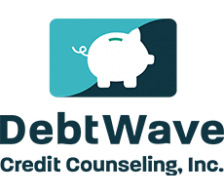After paying the last penny back to your creditor, you may feel a sense of relief. After all, owing money is incredibly stressful!
However, now is definitely not the time to go wild; rather, now is the time to sit back with a cup of tea, paper, pen, and a calm mind to plan your financial future!
What do we mean by planning your future finances?
When people end up owing large sums of money, their money goals oftentimes shift from saving to buy a home, traveling, having a baby or putting money away for their retirement, to paying back debts.
While your financial journey to pay back your creditors may have come to an end, you’re about to embark on a new journey in which you continue to create a bright financial future for yourself and your family.
Let’s begin!
Life After Debt (Plan to Pay Off Credit Card Debt)
Here are the three most important areas of financial planning to consider after you pay off debt:
-
Increase your Savings Contributions:
From now on you can dedicate the money you were putting toward your debt and instead put that money toward your savings or 401k.
Look at your budget. Were you financially comfortable with the monthly amount you were paying to your creditors?
If your lifestyle was largely affected by your debt payoff payments, consider lowering the amount you put toward savings. If your debt payments weren’t much of a problem then contribute that same dollar amount to your savings account.
Consider creating three separate savings accounts – each for a different purpose:
- one for regular savings
- one for emergency expenses
- and the other for leisure or vacation purposes!
Diversifying your savings will not only help you to increase your savings but also acts as a backup in times of financial crisis! When one account gets emptied, the others will let you keep your head straight!
Once your savings account begins to increase, you can calculate your net worth. If you feel that your net worth is not at a satisfactory amount, then consider dedicating more of your income to your savings!
-
Avoid Incurring Additional Debt:
Just because you are not currently in debt doesn’t mean you can relax and ignore your finances.
I have seen more people fall deeper into debt after recently paying off their debts because they were overconfident about their financial status.
Think long and hard about what drives you to spend money and what caused you to incur debt the first time. Where did things go wrong? Were you using the credit cards beyond limits and margins? Or was it that you bought too many depreciating goods and took out too much of personal loans?
Whatever the case is start practicing good habits to stay debt free forever!
Practically there are so many things you can do, to avoid future debts. The best advice is to stay away from consumer debts as much as possible. These are the deadliest of the lot, as they carry the highest interest rates!
By consumer debts, I definitely mean credit cards, payday loans, and other types of personal loans.
On the other hand, auto loans and mortgages fall under secured debts, and they can be managed tactfully with the help of proper budgeting and through credit counseling sessions, like one that we offer at DebtWave!
-
Focus on Investments:
Ah! Investments, one of my favorite topics, on which I can keep on jabbering hours long! But I won’t take much of your time by making you read tough and cruel words. I personally believe that investment is something that deserves a tête-à-tête!
But still, I’ll discuss investments from a broad perspective.
As I shared with a client the other day, all newcomers to the world of investments should start by investing in the most trustworthy and reliable investment vehicles like mutual funds, which include investments in stocks, bonds, options, futures, currencies, treasuries and money market securities.
Mutual funds are the safest and easiest way to enter the market because instead of selecting separate stocks from separate companies, you end up with a diverse portfolio, along with other investors, which is usually managed by professional money managers.
Don’t forget about real estate investments like your home. That’s the biggest personal investment you can make. Try to own your home outright. Else, you will regret later, way more than you can imagine.
Also as discussed above, give high priority to your savings, as those amounts will grow on interests with time!
For the best investment advice for your personal financial situation, consider contacting a financial advisor in your area. If you live in Southern California, consider attending the San Diego Financial Literacy Center’s Financial Opportunity Clinic’s, which allows members of the public to meet with a financial planner to discuss their finances for FREE.
With this, we come to the end of our discussion. We from the house of DebtWave.org, wish you the very best for a prosperous debt free life!



[…] Read More: Life After Debt […]